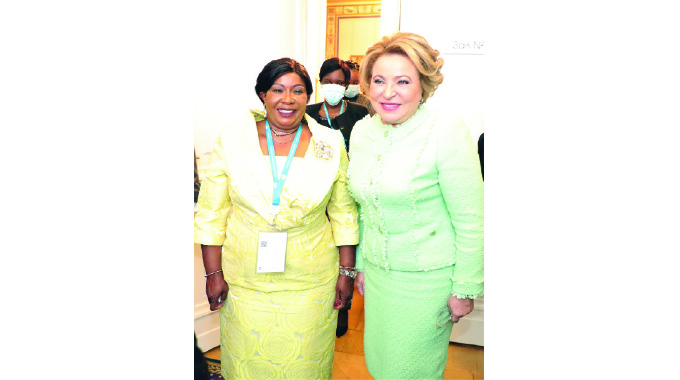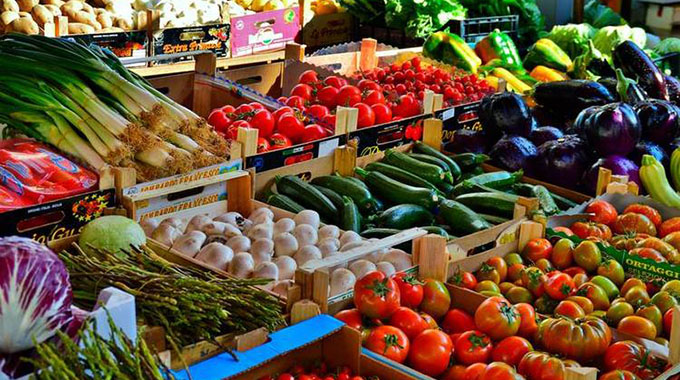VP pitches moving investment case in Dubai

Golden Sibanda in Dubai, UAE
VICE President Constantino Chiwenga pitched a compelling investment case for Zimbabwe in Dubai, United Arab Emirates (UAE) yesterday, urging investors to seize many lucrative opportunities in the country in a manner that had delegates awestruck for a quarter of an hour.
VP Chiwenga’s brief but moving responses during an interactive session left many delegates spellbound, as he chronicled the litany of investment opportunities resident in Zimbabwe.
The VP was in the company of Lands, Agriculture, Fisheries, Water and Rural Development Minister Dr Anxious Masuka, Industry and Commerce Minister Dr Sekai Nzenza and permanent secretary in the Ministry of Industry and Commerce, Dr Mavis Sibanda.
Earlier on Wednesday the VP attended the GBFA opening session and toured Zimbabwe’s pavilions, which he described as “perfect” as it fully captured the Zimbabwean story and its abundant opportunities, as well as the pavilions of Rwanda, China and Russia.
Zimbabwe is among 192 countries exhibiting at Expo 2020 Dubai, which opened on October 1, 2021 and runs until March 31, 2022. The GBFA, a two day event which looked at opportunities and challenges of investing in Africa, ran on the sidelines of the expo.
During an interactive session that lasted a quarter hour, and responding to a question on how Zimbabwe had been impacted by and responded to the negative impact of Covid-19, he said Zimbabwe had managed to turn the pandemic into opportunities for local industry. And when answering a question on what the opportunities were for investors in Zimbabwe the VP flawlessly chronicled the myriad of investments investors could take across key sectors of agriculture, horticulture, mining, tourism and infrastructure, to name but a few.
“Zimbabwe is endowed with natural resources; it has good climate, good soils and (geographically) it is strategically positioned in the southern Africa area; our centrality (in the region) has got its great advantages for interconnection with all the countries (up north), “ the VP said.
First, he told delegates that Zimbabwe presented many lucrative investment opportunities in agriculture and its value chains due to the good climate and fertile soils.
“There is no crop which can not be grown in Zimbabwe; we have done a research study and we have found that in every part of Zimbabwe every crop can be grown.
“We also pride ourselves in having one of the biggest rivers on the African continent, the Zambezi River, which is the fourth largest river in Africa, which we share a border with Zambia,” he said.
Zimbabwe, the VP Chiwenga said, also had other major rivers including Save and Limpopo, which the country shared with South Africa, to tap water for irrigation.
“It is in these valleys that we are now developing agriculture projects. There are good soils, there is plenty of water. Coming into the inland of the country, Zimbabwe has 10 700 dams; it is the most dammed country in the Africa continent.
“And therefore, with climate change the only way you can guarantee crop production and productivity is through irrigation, and with irrigation you can grow anything.
“What is now required is that we capacitate farmers and develop the agricultural sector. We are on course to put 350 000 hectares under crop, to be achieved by 2024,” he said. This would make Zimbabwe food secure and spare some for export.
He said in demonstration of progress towards meeting its medium term targets, Zimbabwe this year managed to achieve the national strategic reserves target of 1,5 million tonnes.
“But by 2024, we will be producing in excess of 2 million metric tonnes of grain, which is way way above what we need and we will also be exporting,” the VP said. He said Zimbabwe was also looking to revamp its livestock sector, which includes cattle, goats, lambs and poultry production.
The Vice President said in mining, Zimbabwe had over 62 exploitable minerals ranging from gold, platinum, nickel, lithium, coal and methane gas, among others.
“All these, and an array of 17 rare earth metals,… are an area where investments can be made,” the Vice President told the highly attentive gathering.
Further, he said Zimbabwe had unlimited potential in tourism, including global attraction and one of the Seven Wonders of the world, the Victoria Falls.
“You cannot get it (Victoria Falls) anywhere else, except in Zimbabwe,” he said.
It was in the same area, the VP said, that one found the big five game animals namely elephants, lions, rhinos, buffalos and leopards, in one area.
He further pointed out that despite its small size, Zimbabwe carried nearly three times its carrying capacity of elephants at 93 000.
Additionally, he said it had the largest buffalo population in Africa and “we pride ourselves that we have the biggest population of rhinos in the whole world”.
“So, this is any area where tourism offers great opportunities from conservation to whatever,” he said, adding the information communication technology (ICTs) and financial services were also areas investors could grab lucrative opportunities.
Earlier, the VP said Zimbabwe had managed to turn the adversities brought by the Covid-19 global pandemic into opportunities.
The country used a mix of strategies from the World Health Organisation (WHO) and its own interventions to contain the deadly pandemic.
These included declaration of National Disaster by President Mnangagwa and the roll out of a cocktail of national lockdowns, among others.
Notably, a decision was taken to avoid or minimise the impact on businesses, especially entities categorised until essential services.
He said the pandemic struck the country while it was focussing on steadying the economy through the transitional stabilisation programme (TSP), launched in October 2018.
“When Covid-19 struck us; yes we got affected, it was a shock for us but we quickly turned that adversity into an opportunity; we accelerated our development,” he said.
He said Zimbabwe took advantage of its highly educated population in universities and other tertiary institutions to research, develop and produce essentials needed to fight Covid-19, including masks, personal protective equipment and sanitisers among others.
The VP also Zimbabwe started producing other key medical products, including medicines, drugs and medical oxygen for hospitals, making the country self-sufficient in this area, which is being continued.
This, the VP said, was done under the triple helix of universities and tertiary institutions, Government (Ministry of Health and Child Care, he also leads) and industry.
After recording remarkable success in the health sector, the VP said the Government turned to production of basic goods, including foods.
Due to disrupted global trade, movement of goods and services became slow and again, he said, Zimbabwe had to turn to local capabilities, and re-engineered its industries.
This resulted in manufacturing capacity utilisation rising from 36 percent to 47 percent and is projected to grow to 61 percent by year end.











Comments